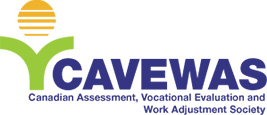Author Archives: srydeadmin
Skilled Worker Shortage: A Unique Opportunity for Career Counselors
Most counselors are aware of the skilled tradespersons’ role in helping to develop the nation’s infrastructure, just as most are aware of the acute shortage of skilled tradespersons. In spite of this awareness, many lack an understanding of the extent of the shortage in this seemingly “invisible” market. To effectively help students and job seekers, …
Essential Skills Mismatches
We already have the tools we need to solve the essential skills gap – they are just being underutilized Forty per cent of the western Canadian workforce does not have the essential skills to do their jobs really well. The basic skills that everyone uses to some extent at work have been called the essential …
Employability Skills Assessment Tool (ESAT): Connecting People to Work
ESAT was created to support the integration of “soft” skill development in training programs so they are given the same or greater emphasis as literacy or technical skills Resolving the looming labour shortage facing Canadians will require a variety of strategies including increased immigration, the retention of older workers, and the engagement of typically under-represented …
Social Enterprise: The Ultimate Accommodation for Job Seekers With Disabilities
One of the most challenging roles a career and work counsellor may face is job placement for clients with special needs. To bridge the gap between vocational assessment and job placement, service providers need to factor disability and accommodation needs into the equation in order to develop a realistic employment goal that will improve the …
Reframe the future with ‘possibilities’ not ‘careers’
Venessa Magny started off majoring in psychology, but as a self-described people person, she knew she wanted a career dealing with the public. It took until her second year of university to realize that human resources was the right fit for her, but this required a complete program shift. So halfway through her four-year degree, …
Users of IWH’s participatory ergonomics guide report better awareness of key steps
Evaluation study finds high interest in participatory ergonomics, but little opportunity for implementation Evidence over recent years has shown that workplace ergonomics interventions can be effective if they engage workers to identify hazards and come up with solutions. This approach, called “participatory ergonomics,” is based on the idea that, when workers, supervisors and other workplace …
What do you plan to do in non-retirement?
I’ve never understood retirement. Naturally, the concept of travelling more and engaging in leisurely pursuits sounds compelling, but work gives me – and most people I know – a sense of purpose. I can’t ever imagine outgrowing the desire to learn new things and meet new people. I likely take these cues from my parents, …
Career Advising for Introverts: Should It Be Different?
NACE blog team member Chris Carlson wrote eloquently about networking for introverts earlier this year. His piece inspired me to think more deeply about the role of introversion in higher education career services. As both an introvert and the career liaison for the liberal arts student population at my university, I recently began to include …
Digging Deeper: Including Physical and Environmental Demands as Key Factors in Career Choice
When choosing a suitable career path, much attention is given to interests, values, aptitudes and educational requirements. However, there are two aspects of career choice that are less frequently and comprehensively explored despite being key factors in successful employment, particularly if the applicant has a disability. Career development practitioners can aid their clients in finding …
The Value of Career Coaching: Supporting Clients Beyond Choosing a Career
The fact is, most people need career guidance at some point in their lives; but far too often, they are not aware that career services are available, nor are they typically aware of the benefits of career services, until they experience them firsthand. This presents challenges for those of us working to develop, implement and …
